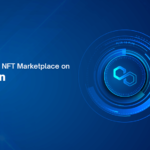
How to Create an NFT Marketplace on Polygon
March 28, 2022
How to Build a DAO on Ethereum?
March 31, 2022The word “volatility” jumps to our minds while we think about cryptocurrency. One of the primary objectives for the introduction of Bitcoin was to abolish the role of intermediaries in eCommerce. It appears to be another mode of electronic currency that allows a steady flow of electronic trades between parties without the involvement of an intermediary or central financial governance. Stable coin development has been at the foray to take the game of crypto trading to a new level.
Though Bitcoin has been filling the area for some time, its volatility has diminished its degree of constancy when it gets down to utilizing it as a means of exchange. The substantial price volatility resulted in the introduction of Stablecoin. Let us explore how to create a stable coin to address the issues related to volatility.
What are stable coins?
Stablecoin is a sort of digital money that tries to imitate traditional and stable currencies. A stable coin is a cryptocurrency that is supported by a collateral-led asset.
Many stablecoins are protected at a 1:1 ratio with fiat currencies and may be traded on exchanges. Stablecoins can also be linked to other commodities like silver and gold.
Unlike other cryptocurrencies, stablecoins do not experience extreme volatility. They leverage cryptocurrencies’ qualities such as irreversibility, openness, encryption, rapid transfers, electronic wallet, confidentiality, and low prices while retaining the trust and stability provided by fiat money. These distinguishing characteristics justify the hype created around stable coin development.
Key features of Stablecoins:
• Liquidity – Because Stablecoins are underpinned by liquid funds, we may create more tokens to preserve stability in the event of a price surge.
• No Volatility – As stablecoins are asset-backed, they can readily withstand fluctuations in the monetary environment.
• Transparency – Given that stablecoins are Blockchain-based, they are transparent, with all network members connecting directly to transactions.
• Simple Trading – Stablecoins have widespread adoption and can be exchanged on a variety of exchanges.
Stablecoins are created by linking assets such as cryptocurrency, gold, fiat currency, and other development processes. The most difficult problem encountered during the creation of stablecoins is the requirement for a team of skilled blockchain developers.
We know about various types of stablecoins that are pegged upon some sort of collateral like Fiat-backed Stablecoins, Gold-backed Stablecoins and so on. But there is another type of Stablecoin classification; centralized and Decentralized Stablecoins.
Develop your own Stable coin with us
Schedule Free DemoUnderstanding Centralized and Decentralized Stablecoins
A stablecoin is a blockchain-based digital currency that is meant to keep its price pegged at a specific level, most often $1. This successfully eliminates holders from market volatility while offering a secure and dependable method. Stablecoins serve as a bridge between retaining securities and exiting through the fiat system, or they are utilized to execute cross-border transfers more efficiently.
Centralized stablecoins are often fiat collateralized off-chain, and are typically directly linked to third-party administrators just like banks. Centralized stablecoins include Tether (USDT) and Coinbase’s USD Coin (USDC). These stablecoins need you to have faith that the third party holds the matching dollars.
Decentralized stablecoins are completely transparent, non-custodial, and have no or only limited third-party control. Because the money is on a publicly certified blockchain, all collateral-backing is transparent to everybody. With a single person holding the funds, the stablecoin becomes trustless and safe. They are classified into two categories: crypto-collateralized and algorithmic.
When necessary, collateralized stablecoins can manually raise or decrease supply by minting or burning. Algorithmic stablecoins use smart contracts, also known as algorithmic market operations controllers (AMOs), to regulate supply autonomously.
Top 3 Decentralized Stablecoins
• Token DAI
According to the white paper of MakersDAO, Dai is created, backed, and stabilized by the usage of Ethereum-based money put into MakerDAO’s vaults.
When a user wishes to retrieve their DAI money, the placed funds serve as collateral. Furthermore, because bitcoins are more valuable than the US dollar, MakerDAO can maintain its stable coin tied to the US dollar at a 1-to-1 proportion.
• EOSDT
EOSDT is a popular cryptocurrency that runs on the EOS platform. It is sometimes referred as a dollar-backed monetary system that utilizes supporting EOS and BTC security and offers additional liquidity.
Furthermore, the currency is extremely stable due to the fact that the stability measures are integrated in smart contracts to preserve a 1:1 parity with the USD.
• The DeFi Dollar (DUSD)
DeFi dollar is designed to be a stablecoin. To keep close to the Dollar, the currency employs DeFi primitives. The currency allows investors to index a variety of stablecoins in a single token. It also shields consumers from any underlying hazards.
Furthermore, DUSD is collateralized using Curve Finance liquidity provider (LP) tokens and stabilized via Chainlink oracles. Curve is also used for combining loan protocols and token exchanging. This is yet another critical step towards the token’s stabilisation.
Stable coin development is going to open new means of crypto trading and is expected to become the usual means of trade in the future, thus spending on developing your stablecoins is worthwhile.
However, when you consider the difficult process of generating and releasing such a coin, it is easy to get frightened. You want a competent and technically sound staff, like ours, to assist you in getting started and aboard your quest of developing stablecoins that may yield several advantages for your firm.
We provide customized stable coin development services to cater to diverse business needs. Whether you need any commodity-backed stable coin, such as a gold-backed stable coin, or a centralized or decentralized stable coin, we successfully cater to your needs.
Connect with our subject matter experts to share your business needs.



